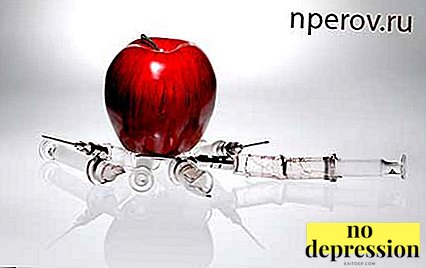This article is meant to answer the question. how to quit smoking forever. Why precisely forever? And because the biggest problem in quitting smoking, as most smokers know, is not the process of “quitting” itself, but the need not to smoke later.
I do not want to seem immodest or too presumptuous, but then what will be discussed further, perhaps the most effective way to quit smoking, because it affects the basics of your personality, because of what you smoke, in the next 4 articles we will discuss this.
Many who are able to endure the first weeks without cigarettes, but not everyone can stop smoking after quitting. It happens stress, tedious waiting, problems in life, drinking in a smoking company.

Why do we go back to smoking after being quit?
The brain remembers that it always helped out in these situations. When you are nervous or boring or do not know where to put yourself during general fun and how to fill the pauses in the conversation. At such moments always rescued pack. You know that, and here you are again drawn to her, and all your efforts and attempts to quit go to the smark.
Someone may think that he has found a compromise in smoking - he stopped blowing on a pack a day and now he smokes only on holidays. I believe that “controlled smoking” is nonsense.
So, what makes us take up a cigarette again, when it would seem that everything, already endured, realized the intention to break the vicious dependence? I am sure that most people are not aware of the real reasons for the return to smoking, they can not understand what they need to do in order not to feel the craving for nicotine after quitting it.
Meanwhile, the answer to this question is terribly simple and obvious, and a way to quit smoking forever, is so banal in its wording that you will be surprised to know that there is no science or patented technology behind it.
And I feel a great surprise when I stumble across the lack of understanding of this obvious thing among smokers who try dozens of fashionable ways of getting rid of addiction and all to no avail. But after all, the right decision lies under their nose, in themselves, but they all go around and around and do not notice it!
Actually this will be discussed in the article. I will tell you what to do to stop smoking and not feel the need for nicotine sticks in the aftermath. The key word here is “do not feel the need”, you will not need to resist and keep yourself in hand, you just will not want to let the smoke in after a while.
When I wrote this article, it turned out to be big, so I divided it into 4 thematic parts. If you plan to quit tobacco for good, then I recommend that you devote time to reading all the articles in the series. After all, it is about your health and I am sure that the truths presented here will help you to stop smoking, as they helped me. So do not be lazy and read to the end.
Let what I’m talking about is not the most easy way to quit smoking forever, but the most effective and efficient.
Tobacco smoking as an everyday ritual
Do not think that I am trying to retell someone else's experience. I smoked for about 6 years, about a pack and a half a day. Cigarettes were for me not only an affordable drug, but, as I have already said, a magic wand that exists with me in any situation, no matter where I am.
At any meeting, in every conversation, in all troubles, I could always distract and thoughtfully drag on. After completing the case, I had the opportunity to reward myself a little bit and go tobacco with a sense of accomplishment. Tobacco rescued me in the hours of waiting: instead of harassing myself, it was possible to go out to air and drag out. Well, at work, it would seem, God himself ordered to run to the smoking room every hour.
In short, tobacco smoking has become more than a habit for me, a whole ideology, a system of rituals and rewards. And at the thought that I would have to part with them, fear visited me.
Okay quit, but how not to smoke then? What will I do at the stops, when there is no bus for a long time, what will I celebrate with the completed work, how will I calm myself down in minutes of stress?
Truth is not somewhere near, but very close
But then I realized one simple thing to be ugly. At first, simply intuitively, I did not have a ready-made formula in my head, but I already understood something. Then, I quit. I was drawn to cigarettes only for the first few weeks, two or three. But then, whatever happened, in whatever smoking company I was, in whatever condition I was, I did not have to pick up a pack, put a filter in my lips and drag on.
And after about two years, during which I watched my friends who left, they suffer without tobacco, and some of them come back to him again, (and I was just incredibly glad that I didn’t smoke and didn’t pull me at all) I formulated principle that helped me cope with addiction. In the beginning I followed him unconsciously and instinctively, and only time helped me to realize him and put them into words. This principle is somewhat generalized, but I, without any exaggeration, believe that this the only way to quit smoking forever.
So, this method consists in the following: one should fight not with addiction itself, but with the reasons that caused this addiction, made it possible. And only then can you cope with any bad habit without much resistance. This principle is aimed at combating the cause, not the effect, which is why it is effective.
True, the thing is obvious! But, meanwhile, I am puzzled when I see an advertisement for anti-nicotine patches or chewing gums, which supposedly help quit, because they alleviate nicotine hunger. And people use them in the confidence that it will help to quit, and then wonder why they start again. Do patches and pills cope with the cause of smoking?
Physical and psychological addiction
It is a mistake to assume that physiological addiction to nicotine is the reason why we smoke. Yes, undoubtedly, this is one of the reasons for smoking, but only one of them is far from being the most significant (well, it is essential if you smoke for 40 years and the withdrawal syndrome entails severe suffering and health problems - but I hope that you are more conscious and will not bring to this and stop smoking now, before it is too late)!
There are two types of addiction - this is physiological, which I mentioned above and psychological. The first is directly related to the physiological mechanisms of addiction to the drug: nicotine is “embedded” in the metabolic processes of the body and, as a result of addiction, the production of certain hormones is difficult if we suddenly stop getting the drug.
We kind of pull out a key link from the metabolic chain, and from this we experience all the discomfort, the desire to drag on (the unconscious mechanisms of the body strongly signal this as a vital need, which as such is perceived, therefore the desire is so strong like hunger or thirst).

The second is the psychological aspects of addiction, which are determined by the nature of our personality, this is what causes us to return to smoking (and not only smoking, but other drugs, including alcohol). But not everyone understands what psychological dependence is and because of what it arises. It seems that this is a concept that is actively used by people everywhere, it is common and on everyone’s lips, but it is unlikely that most are aware of the reasons for such habituation. Actually, I will continue to talk about this.
The biggest mistake of smokers
The mistake of many "throwers" lies in the fact that they direct all efforts to combat physiological addiction, they believe that once the body is out of the habit of using a narcotic, the problem will disappear. A few weeks or months of withdrawal, physical discomfort (and this is not hellish agony, I tell you), nicotine, as an element of metabolism, falls out of the chain, you no longer feel physical craving for a harmful substance, your body ceases to perceive it as substance necessary to maintain vital processes.
It would seem that everything should end there, nicotine is an objectively harmful chemistry for the whole organism, you made a conscious attempt to abandon it ... But for some reason with all this for many people, not everything ends there, after some time they start again to smoke
This is because they did not pay enough attention to the psychological reasons for their addiction (this is the very heart of mine, affection for the cigarette as a lifesaver, which took place with me.), Which did not disappear after the physical addictive.
Why do we replace one habit with another?
This fact is not only the cause of returning to old habits, but also explains why, even if the old addiction has disappeared and the person does not return to it, he still replaces it with something else.
Those who stop using illegal drugs, start drinking alcohol with fanaticism, those who quit smoking are trying to fill the vacuum created by cancellation, uncontrolled gluttony or anything else. Smoking is just a private way to satisfy some inner psychological need.
We stop smoking - this need does not disappear anywhere, just as the force of gravity of the Earth does not disappear if you suddenly remove from it all the objects that it attracts. Dependence is not characterized by its object, it is by itself and we must fight it, with its causes.
In order not to be more unsubstantiated I will give an example from my own experience, let me dwell a bit on this, since I believe that the subject of the article requires this presentation. It would not hurt you to know what helped me personally to stop using tobacco, and then I will tell you what can help you. stop smoking once and for all. Therefore, I suggest you proceed to the next part as I quit smoking.



